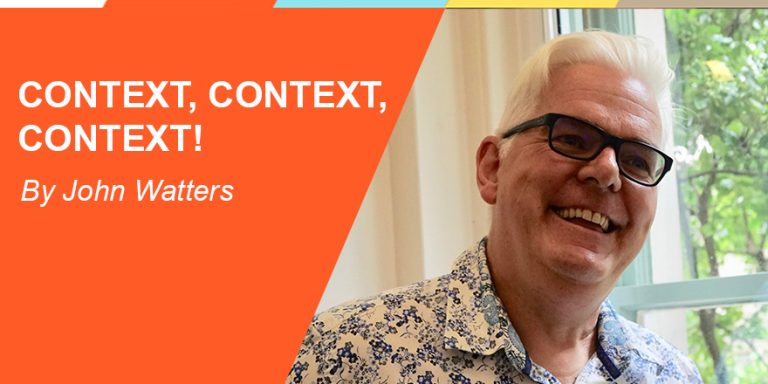Spirituality – refreshing the parts that performance management can’t reach
The Royal Society of Arts (RSA) in the UK published an ambitious report last month: Spiritualise – Revitalising Spirituality for 21st Century Challenges. The report seeks to integrate scientific understandings of human nature with an exploration of the role and understanding of spirituality in society. It’s a bold initiative which aims to straddle academic rigour, readability and practical insights for policy and action. Five themes struck me about spirituality in organisations:
1. Spirituality is the yearning in people’s lives for something beyond the material aspects of their existence. Spirituality is a multi-faceted and contested word – it relates to the search for meaning and the ground on which people stand and live their life. As we spend such a significant part of our life at work, this search for meaning and growth should find appropriate expression in the workplace. This search for meaning is a universal drive and crosses the divides of secular and religious language; in many ways the vagueness of the term ‘spiritual’ may allow us to talk openly about the values and practices that are fundamental to a worthwhile life, well lived.
2. The importance of leaders articulating a shared purpose that engages people’s spirit and calls forth their highest potential. There was a telling quote from Claire Gilbert-Smith, Director of the Westminster Abbey Institute about those working in and around Parliament: the atmosphere is like “a brittle sponge that is so desperate for water… it’s obvious in the people, the institutions, it’s in the air, this huge longing for depth.”
In my experience of working with organisations this longing for our work to add up to something significant, to be in service of some larger purpose, beyond just meeting our material needs or the numbers for shareholder returns, is strongly felt across all sectors, not just politics.
3. The maps that we apply to the workplace and people are in need of updating. Many conversations in organisations around the topic of leadership development or organisational development are based on the implicit assumption that as human beings we are primarily rational and self-determining. There’s an inference made that we are conscious of and deliberate about our behavioural choices and consistent in the application of those deliberations.
The report argues that these taken-for-granted assumptions that drive much of what goes on in organisations (and public policy) are not scientifically or spiritually grounded. It’s no wonder that so many leadership and other kinds of development programmes have such little impact. The emerging 21st century picture century view of human beings as elaborated in the report “indicates we are fundamentally embodied, constituted by evolutionary biology, embedded in complex online and offline networks, largely habitual creatures, highly sensitive to social and cultural norms, riddled with cognitive quirks and biases, and much more rationalising than rational.” This brief summary quote requires unpacking and the report does that.
4. The uncomfortable truth is that we live mostly unconsciously on psychological autopilot. The RSA report quotes studies that indicate conscious thought may be causal for as little as 5% of our behaviour, the remaining 95% of our behaviour being a mixture of automatic and habitual responses.
Our habitual, largely unconscious brain processing and our tendency towards psychological homeostasis, so clearly articulated by Professor Robert Kegan in his book Immunity to Change, cause us many difficulties. Many of our most pressing and toughest problems facing organisations and society, require us to think, feel and act differently: particularly in response to so-called ‘adaptive challenges’.
Gurdjieff, an early 20th century spiritual writer, described what has been known in different religious and spiritual traditions over the millennia and what the RSA terms ‘automaticity’: “Man is asleep…he has no real consciousness or will. He is not free; to him, everything ‘happens’. He can become conscious and find his true place as a human being in the creation, but this requires a profound transformation.”
5. The bright spark of possibility is that as human beings we have the potential to live with awareness and choice. In spiritual terms this is often described as our latent capacity ‘to wake up’. The positive effects of this waking up, and being present in our life, are evocatively captured in the report in the following quotation by 85 year old, Nadine Satir: “Oh, I’ve had my moments, and if I had to do it over again, I’d have more of them. In fact, I’d try to have nothing else. Just moments, one after the other, instead of living so many years ahead of each day.”
This quality of being present in our personal life may also be very helpful for our working life. How do we wake up and be present? Mindfulness is a key life practice to cultivate this quality of presence. I propose ‘life practice’ as a more universal term, and to avoid the politics of labelling by naming it spiritual, religious or psychological practice. This month’s All Parliamentary Interim report on Mindfulness and its application in public policy defined mindfulness as “the awareness that emerges through paying attention on purpose, in the present moment, with curiosity and compassion”.
Hunter and Chaskalson in the RSA report explain the relevance of mindfulness: “The power of mindfulness arises from systematically developing a person‘s attention so that she can recognise in the moment how she identifies with her implicit, habitual and automated patterns of thinking, feeling and acting and the results they bring about. By recognising these patterns, she can elect to change course. As a result mindfulness endows ‘an adaptability and pliancy of mind with quickness of apt response in changing situation.”
The practical question is how we grow this mindfulness capacity widely in our workplaces and how can it be introduced wisely and effectively.
The RSA report, whilst illuminating can also be hard-going at points, given its impossibly broad task and breadth of ambition. Rather brilliantly, the report ends with an insight from spiritual writer, Richard Rohr about the way forward …“We do not think ourselves into new ways of living, we live ourselves into new ways of thinking.”
For further practical inspiration on how to act on these ideas watch or listen to Thursday’s talk at the RSA live (22/01 at 1300 UK time), How to become a soulful organisation, with Frederic Laloux, author of best-selling book, Reinventing Organisations. Here at Future Considerations, we too are exploring what it means to create soulful, purposeful and powerful workplaces and how we can help our clients on their journey.




Hi John,
Great to see that you’ve spotted the RSA’s Spirituality project, and it’s final report – and are even connecting it to Frederic Laloux’s inspiring survey of ‘Next Stage’ organisations.
I’ve been so caught up in other work that I’ve not actually been able to read the report through yet – despite contributing lots of bits and bobs to it (such as the Gurdjieff quote about our automaticity). I also set up an RSA Fellowship Spirituality network alongside the project, which is open to all.
In one event I facilitated for that network we looked at what the characteristics of a spiritual workplace might be. Here’s what we came up with: http://bit.ly/workplacespiritualitycharacteristics (might be rather different if done again today – with lots of people having read Laloux!).
I was really keen to highlight leaders who’ve brought a ‘Spiritual’ approach to how they’ve run successful (non-spiritual) organisations. People like Lynne Sedgmore FRSA CBE (recently named one of Britain’s 500 most influential people, by Debretts!). To me, it’s people like that who can make ‘Spirituality’ real. I’m not sure the report brought out such on-the-ground workplace examples… (I’m currently reading a book by two US academics about her work: ‘Spiritual Leadership in Action: The CEL Story – Achieving Extraordinary Results Through Ordinary People’).
I also wondered about the idea of turning the report *itself* into a ‘Mindfulness’ tool – by giving people some very simple instructions for a quick exercise on how to be mindful and present. And then include randomly throughout the text a prompt to do this Mindfulness exercise – perhaps in the form of a phrase like ‘the bell is ringing’! (I’ve seen this done well in one book, and Eckhart Tolle does a somewhat less focused version in one of his. But it would be great to see this in a think-tank report like the RSA’s, or a white-paper. Reading about Mindfulness and automaticity is very different than directly experiencing it for oneself, as I’m sure you know!).
It was also great – recently – to come across a US Christian Minister who’s been tasked by Prof Robert Kegan with taking his wonderful ‘Immunity to Change’ approach out into spiritual communities – which is proving both fruitful and challenging.
Matthew
@MatthewMezey
Thanks for the various connections and links Matthew. Your point about the experiential aspect of this work is key. To be helpful in working with organisations you have to be aware of your own automaticity and immunity to
change; it’s a rather humbling experience I find.
I’d be interested in the name of the US Christian minister who is work with Robert Kegan if you have it.
I wonder if the Church of England who are reconsidering their approach to leadership are aware of these tides of change in leadership thinking from recent writing like Laloux. It’s interesting that Prebendary Lord Green (former Group Chairman of HSBC) was advising the CoE on culture change and leadership development. Lord Green might himself be reflecting on the theme of Immunity to Change at a systems level given the ongoing difficulties in HSBC.
John Watters
Fellow
Hi John (and Andrew),
To back up your point about the experiential side being crucial, I remember one of the things that Prof Bill Torbert and I talked about when I interviewed him for the Anti-Hero leadership report was how real dialogical practices, the use of what he calls ‘mutually transforming power’, is rarely seen – even in spiritual communities, religious institutions etc. (Empirical research has even found that meditation communities, the ‘Integral’ community etc are often full of newly post-conventional folks, who are often in fact rather narrow and dogmatic – actually ‘Independent’ in their way of thinking, not ‘Inter-independent’).
All in all, unilateral power seems deeply embedded even in those organisations that we would hope might be committed to some kind of transformation.
Bill is also very clear that a shift to the later, inter-independent stages of leadership maturity doesn’t occur in people unless they’ve made regular use of dialogical practices, experiments, in their everyday leadership. (Though Laloux doesn’t agree with putting it quite so strongly).
I’m sure looking into one’s ‘Immunity to Change’ must be helpful for anyone involved in such changes. Without that kind of deep personal reflection – examination of one’s own mental models – no truly transformative changes are likely to happen, I suspect.
My current opinion (this month, at least!) is that the simple everyday (participatory) tools that are most likely to be spreadable through any organisation – including the Church of England – are ‘Liberating Structures’: http://www.liberatingstructures.com/ (Actually a label they borrowed from Torbert!)
The simpler ones can take around 10 minutes – and they don’t need a trained, effervescent facilitator. Real DIY stuff for everyone to try, in order to engage everyone and free up creativity. (And quietly allow emergence to… er… emerge).
Perhaps doing their Inclusion and Engagement Survey (IEQ) might prompt organisations like the Church to spot the urgent need to try new things: http://www.liberatingstructures.com/ieq-survey
So far they’ve created/gathered together 33 different ‘Liberating Structures’. I’m even looking, with someone else, at whether a simple version of Kegan/Lahey’s ‘Immunity to Change’ exercise might work as a 34th one. I think it might add something important…
I’m keen – when I have the time – to see how a more traditional structure compares to a more liberated one, using their IEQ survey. I have two organisations in mind.
The Minister using ‘Immunity to Change’ in the US is Tom Thresher – he has a book coming at some point, about it all. I’m not sure whether he’d want his e-mail out one the web. I’ll e-mail you it…
I only just spotted Andrew’s comment. I suspect we’re all agreed on the importance of experiencing with others,connecting at the level of spirit. Torbert’s decades of such practice – in the Gurdjieff work – are a sign of that commitment in his life/work. I’m also involved in such things…
Matthew
@matthewmezey
Matthew,
I agree about the rarity of what Bill Torbert describes as mutually transforming power and it’s very heartening when you encounter it.
Last night I was at a meeting of APECs coaches in London. I was invited as a visitor as the focus of their discussion was the application of Frederic Laloux’s work (Reinventing Organisations) in the field of coaching. What was delightful about the meeting was the presence of a self-inquiring (1st person) attitude, the quality of collective (2nd person) inquiry, and a curiosity about how Laloux’s thinking applies in their work with coachees and wider organisations (3rd person inquiry). And the whole conversation was underpinned by a willingness to speak from the heart and to make oneself vulnerable i.e.occupy the space of not knowing which is different from the place of ignorance.
Like you I’m also a fan of Bob Kegan’s Immunity to Change work. I value his helpful & simple introduction to vertical development with his description of the Socialised Mind, the Self-Authoring Mind and the Self-Transforming Mind. One thing I’ve found helpful in working with Kegan’s Immunity to Change around some fundamental shifts I’ve want to make is to engage with the notion of healing, forgiveness and kindness as practices. This isn’t in Bob’s repertoire, at least as written up in the book, but healing does fit in with Laloux’s ideas on wholeness. Healing is rarely, if ever, mentioned in the traditional lexicon of OD, but the root of the word healing and wholeness are the same. So I would include healing and forgiveness as wholeness practices. Going back to the RSA report this is where spiritual practices can enrich our work in organisations and are necessary for many of the challenges we face.
Both Laloux’s Reinventing Organisations and the RSA report on Spirituality are calling for us to work at a different level of depth with people in organisations and with a much richer sense of the nature of the human condition. Going back to my APECS meeting last night one conclusion is that Laloux’s work calls for something very different from each of us (whether we are consultants, coaches or people working inside organisations) than taken for granted conventional assumptions: a shift in the quality of our being as well as our doing.
John wrote:
“Laloux’s work calls for something very different from each of us (whether we are consultants, coaches or people working inside organisations) than taken for granted conventional assumptions: a shift in the quality of our being as well as our doing.”
Yes, and that shift calls for practice. I intend to review in the next couple of months the practices that the various developmental schools recommend for the shift to Teal (under any other label). I will do that preparation to the next phase of my mentoring work, focused on the three breakthroughs (evolutionary purpose, self-management, and wholeness) in the context of personal development.
Nice!
I’d like to point to a distinction between discussing and experiencing. When we discuss – point to the value of spirituality- it’s interesting for us (like little Facebook sayings) . . . but practicing/ experiencing with others, actually connecting at the level of spirit, is powerful and potentially transformative.
John, I am so glad you talk about this mostly neglected spiritual energy in organisations. It carries huge potential for change and transformation.The feeling that I am growing, that I am creative and finding something out is in essence a spiritual principle.
Without giving space to spiritual energy we are denying or ignoring an integral part of our human nature. If we leave something out that is so fundamental to feeling alive, of course we feel uncomfortable and stuck. How else would we know that there is something missing that needs paying attention to?
When both my heart and mind are fully engaged in my work it feels as if something is trying to work itself out through me. With ‘through me’ I mean it feels like I am a vessel through which new energy flows. When I am standing in the way with my prejudices, fears and old habits, energy cant flow and thus nothing new can develop.
This conversation reminded me of a very enlivening conversation I watched between Karen Tse had with Thomas Huebl. Karen Tse is not at all resistive to accepting challenges as a gift to become creative and alive and she thus serves something much larger than herself.
Transformation through Service: https://youtu.be/01wrirhXqVU